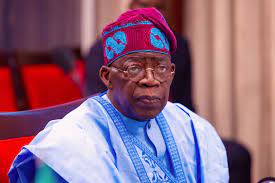Abuja, April 30, 2024 – President Bola Tinubu says he has signed an Executive Order to unlock about $10 billion in fresh investments in the oil and gas sector.
He said this on Tuesday at the opening of a two-day retreat on economic transformation and development organised by the House of Representatives.
Tinubu, who was represented by his Chief of Staff, Femi Gbajabiamila, said the federal government signed the consolidated guidelines for implementing Fiscal Incentives for the Oil & Gas Sector just last week.
He said the guidelines represented a cornerstone of the Presidential Directive and was also aimed at enhancing the Nigerian oil and gas sector’s global competitiveness as well stimulating economic growth.
The Executive Order also streamlines contracting processes, procedures, and timelines from 36 months to six months.
“The order also seeks to ensure that local content requirements are implemented without impeding investments or the cost competitiveness of oil and gas projects.
“All of these have the same objective – to reduce government interference with the commercial imperatives of businesses in the country so that businesses based here can be competitive and focus on their core objectives of economic growth through innovation and trade.
“We will need the support of the National Assembly to fully implement some of these reforms, as statutory changes will be required in some areas.
“I am confident that when the time comes, the governing partnership we have established between the Executive and the Legislature will ensure that these changes are effected swiftly to benefit our nation.”
The president expressed appreciation to the leadership of the National Assembly for their swift action in considering and passing the Student Loans (Access to Higher Education) (Repeal and Reenactment) Act 2024.
“Your actions have substantially fortified the legal framework of the Students Tertiary Education Loan Program, ensuring its efficient implementation. These achievements are a testament to the power of our partnership and the positive impact it can have on our nation.
“In a World Bank document titled “Legislative Oversight and Budgeting: A World Perspective,” Thomas Frederick Remington wrote “for legislators to effectively fulfil their roles of representation, oversight, and law-making, a certain level of cooperation between the Legislature and the Executive in policymaking is essential.
“The legislature must have the capacity to monitor the executive, and the executive, in turn, should be willing to comply with the legislative enactments.
“It is not just a coincidence but a strategic advantage for our country that the governing relationship between the Executive and the Legislature perfectly reflects this ideal.
“As you know, my administration is implementing significant policy changes to reform how we govern and position our country for progress and shared prosperity for all citizens.
“These reforms, while necessary and, in some cases, long overdue, are not without their challenges. I am deeply grateful for your unwavering support and understanding during these times. Your understanding and support have been invaluable, and I am confident that with our continued collaboration, we can overcome any challenges that lie ahead.
“The oil and gas industry has long been the lifeblood of our national economy. My administration is working tirelessly to change this and diversify our economy from overreliance on the production of fossil fuels. However, we are also determined to maximise revenue potential from this critical industry.
“For this reason, we are pushing policies to attract investment in the oil and gas sector.
“We can only justify our collective mandate and the trust our people repose in us through constructive collaboration between the National Assembly and the Executive. This joint effort is the minimum the people who voted for us expect from us.
“However, the very essence of checks and balances means there will be times when the executive and legislative prerogatives inevitably collide. Above all else, the national interest must guide our decisions in those moments.
“We share a common responsibility in shaping the future of our nation, and it is through our collaboration that we can effectively fulfil this duty.
In his address, Abbas Tajudeen, the Speaker of the House of Representatives, said the House made it a deliberate decision to focus on tax reforms and modernisation as well as a review of the implementation of the Petroleum Industry Reform Act (2021) at the event.
He said the overarching objective was to discuss and identify concrete legislative strategies for economic transformation. (GBN)





